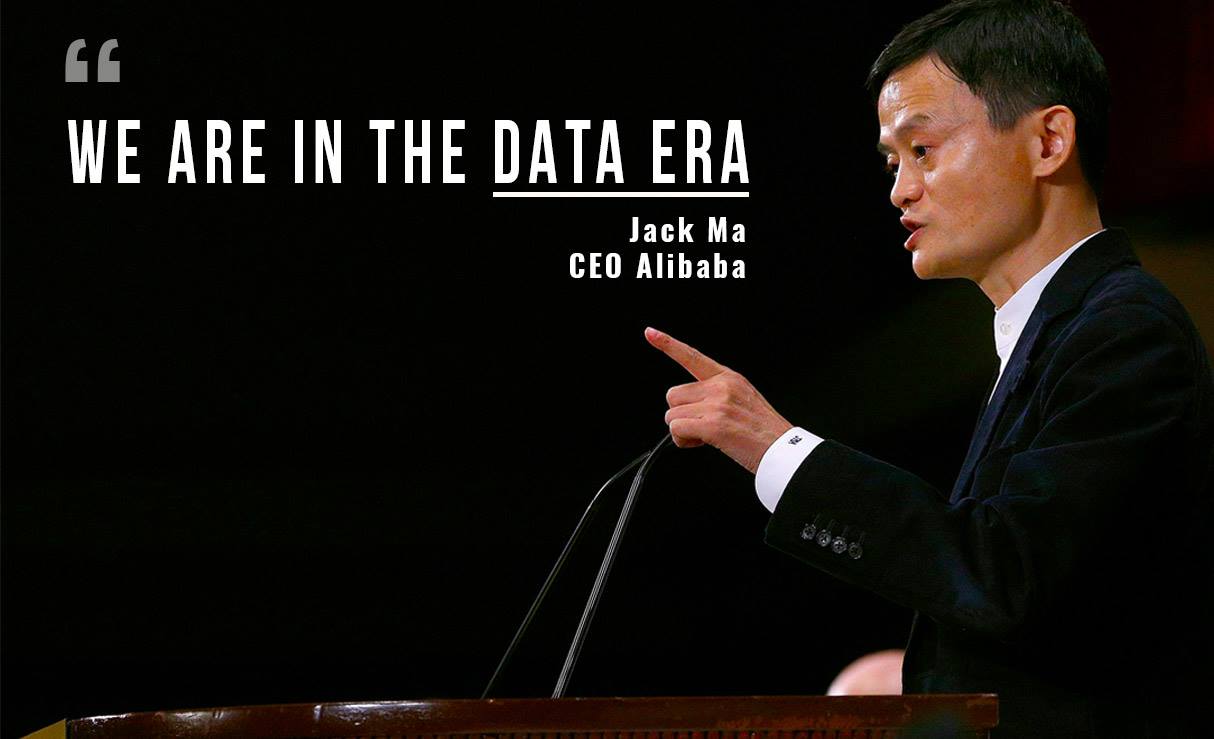Data science is the new up and coming skill everyone needs to have.
What era are we in? Simple answer – We’re in the data era.
According to Jack Ma, it’s only through internet technology and big data that Alibaba was able to establish a truly meaningful innovative infrastructure for commerce. In the society of tomorrow, data will be the most important means of production, innovation, and social development. Alibaba is fundamentally a data-driven company.
Not only the amount of data has increased in businesses and organizations around the world, the channels to produce data has also increased.
Everything today produces data, from the few apps you use every day from Facebook, WhatsApp, Pokemon Go, and even to the car you drive every day. Shocking, isn’t it? All these data can be used in many ways – to improve lives, productivity and even to increase profit.
Data Science Case Studies in Malaysia & Beyond
In order to explain data science better, let us look into some real life case studies.
How Air Asia is on route to save 50 million with data science
AirAsia has transformed the airline industry by offering affordable flights to all their customers. The company is able to do this with the help of data science. What they did was to harness a cutting edge data analytics technology, so they can ensure low fares and market lead for budget travellers.
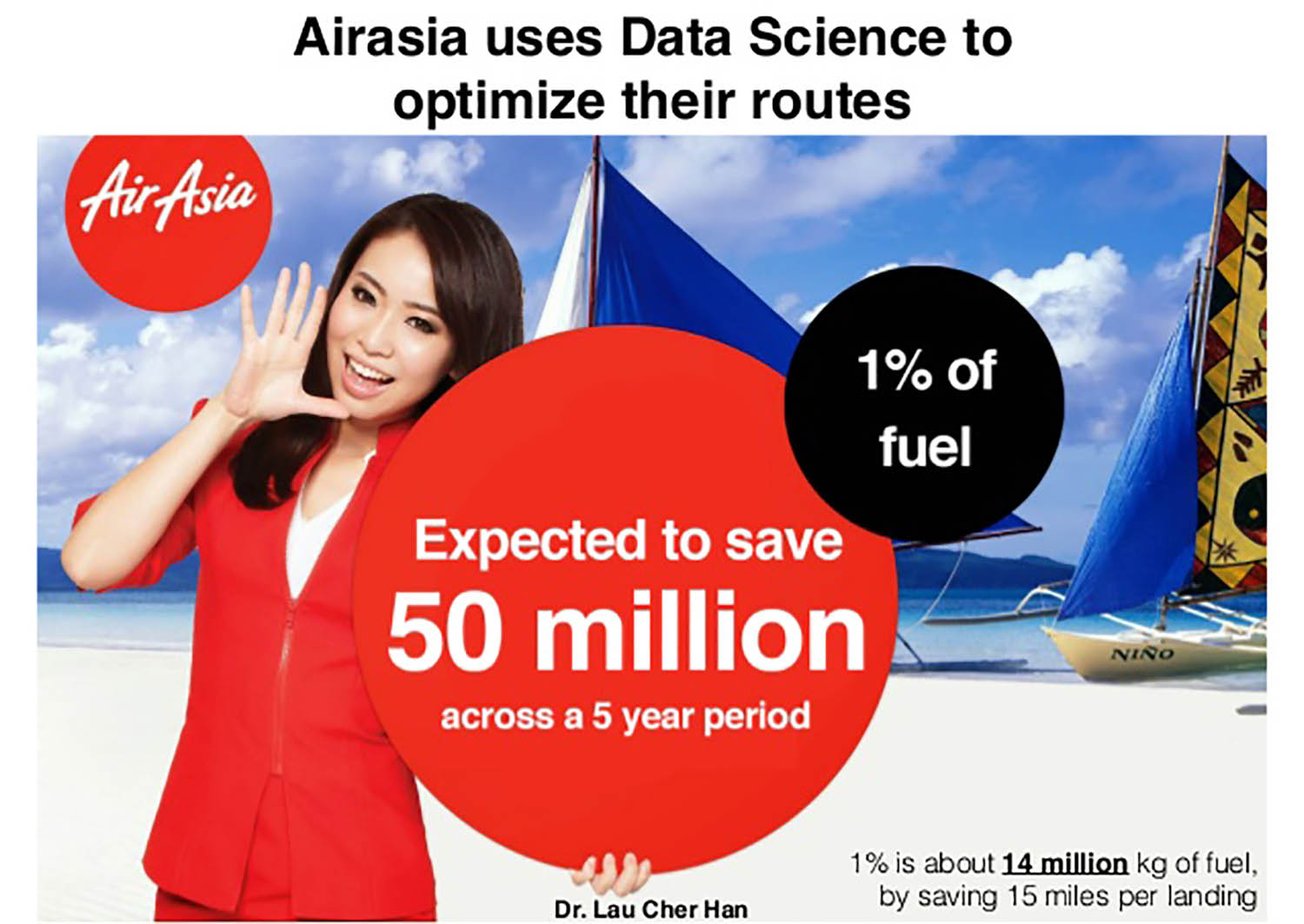
Once they have made a significant success with their low fared tickets, competition from the other airlines started to intensify. In order to maintain their status of being the airline that provided the lowest fares, they used advanced data analytics to evaluate the most efficient flight paths to take and optimize their flight routes. With that, they were able to save 1% of fuel expenditure per year. This may seem like a small number, but accumulatively, AirAsia was able to save 68kg worth of fuel per flight, and over a 5-year-period, they were able to save approximately USD50 million.
Why UPS invests $1.5 billion on data science every year
United Parcel Service (UPS) is one of the biggest courier shipping company in the world today. They have over 399,000 employees in 220 countries and their revenue is over $54 billion per year.
UPS has been a fan of data science and have been collecting data at every possible moment in their line of business to constantly increase productivity and save cost.
One of their latest data project that cost over $1 billion is called ORION. ORION stands for On-Road Integrated Optimization and Navigation. Using advanced algorithms and fleet telemetries, UPS optimized the routes their drivers take every day. For example, UPS monitors when a driver reverses a truck too often or takes too many wrong turns. This analysis shows that the drivers need more training to be more efficient.
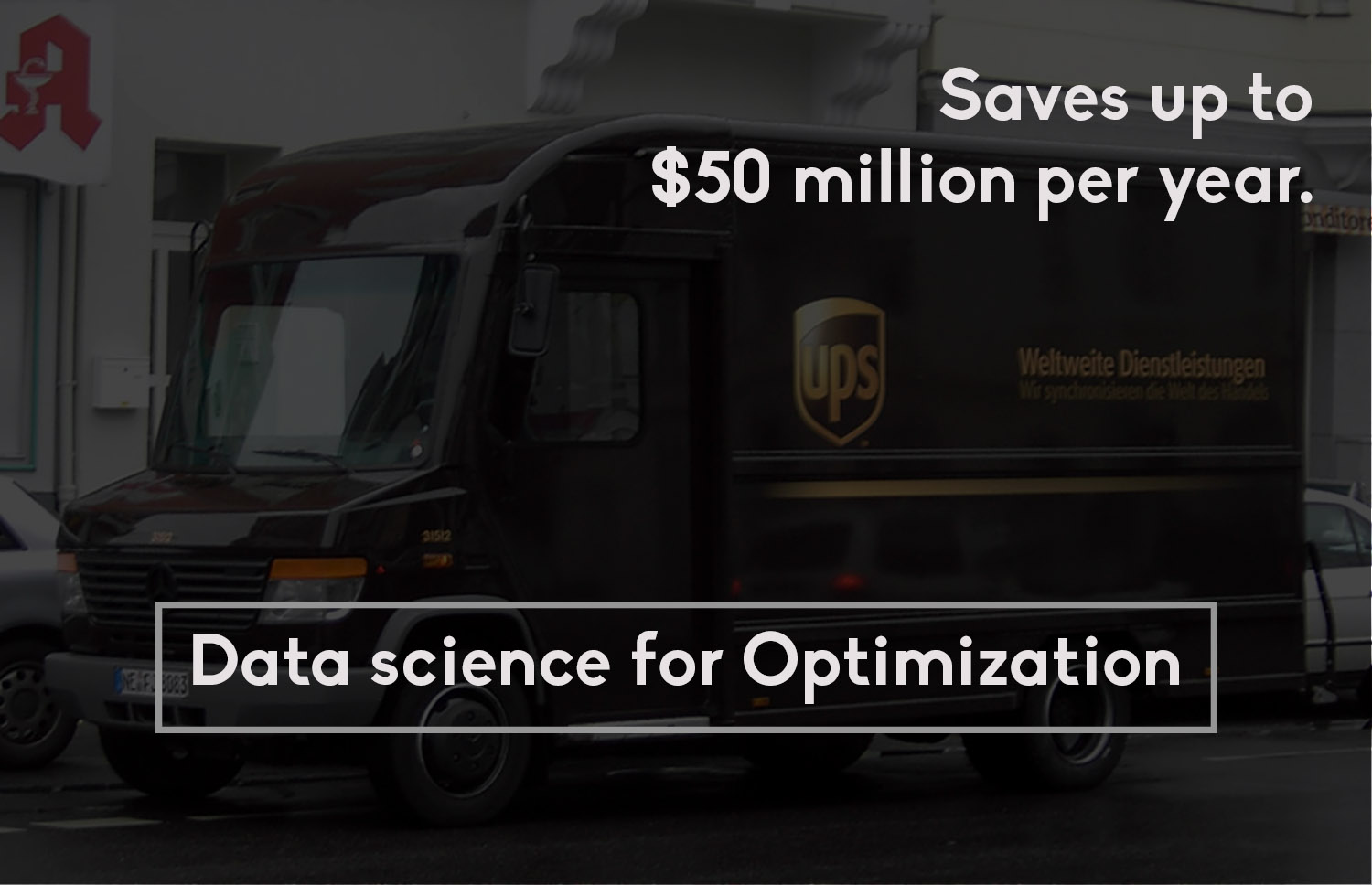
By coming out with data-driven analysis to show drivers the most efficient routes to take, together with other optimization efforts, UPS explains that saving 1 mile per day per driver can result in saving 1.5 million gallons of fuel per year, which translates into 50 million savings annually.
Other than saving fuel, UPS also leverages on data science to predict the time for maintenance of their delivery trucks.
The point is, UPS is willing to invest in data science because it can do wonders in the growth of their company by saving cost and increasing profit at the same time.
Malaysia Airport – Using social data & analytics to enable world class airport services
Passenger feedback is critical for the Malaysian Airports Holdings Berhad (MAHB). With around 80 million people who pass through the airport yearly, the Customer Affairs and Resolution Excellence (CARE) unit were set up to improve customer service on feedback from customers on social media channels.
Berkshire Media, a social analytics company was commissioned to analyze and understand the passenger’s behavior. Updates from MAHB passengers and customers were analyzed using social media monitoring on top of sentiment analysis and opinion data mining. All of the efforts is done to predict the customer sentiments towards MAHB.
These data were then visualized and shared with the CARE unit, so they can take necessary actions to address customer complaints and dissatisfaction.
This effort resulted in a 1000% in a number of positive post on social media, with MAHB’s Facebook likes to hit 90,000 likes in just 8 months from 2,000 likes.
Misconceptions About Data Science
Here are some misconceptions about data science you might have as someone who is new to this field.
1 – More data help us make better decisions.
No. More data does not necessarily help us make better decisions.
Let me give you an example: There are literally hundreds & possibly thousands of food blogs, directories and websites in Malaysia that are all filled with the best informational data about where to eat and which places are great for a meal.

However, all that data does not help us make better decisions on where to eat!
2 – I have no technical knowledge. I can’t do data science.
One of the biggest misconceptions about data science is that it is more suitable if the person is someone who has prior technical knowledge in coding or programming. Some probably think it’s too late for them to learn because they have not started at a young age.
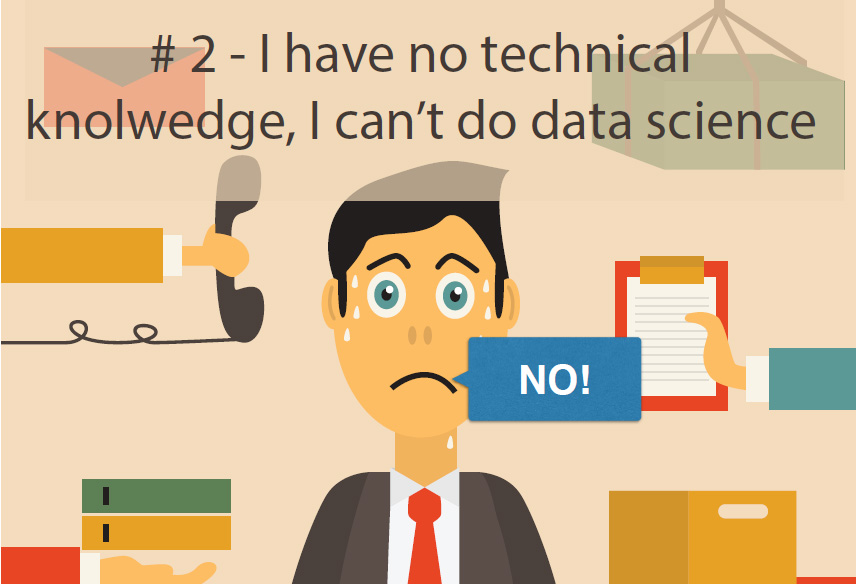
This is false. Even someone without technical knowledge can pick data science and scale it up as a career.
What did our ancestors survive the ice age? They are empowered by tools. The same goes for data science, there are lots of tools that you can use for data science.
3 – Data science tools are expensive
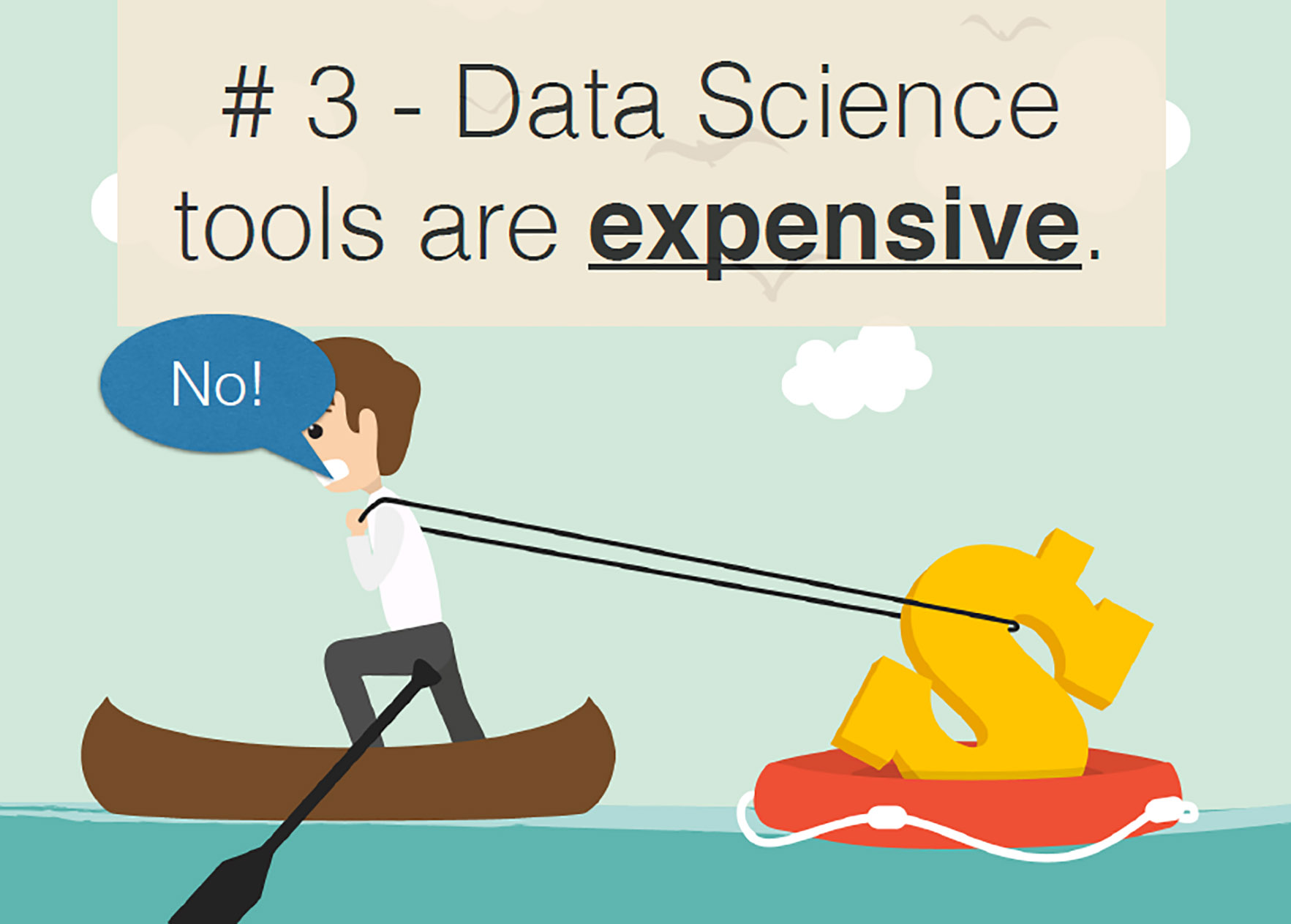
The fact is most data science tools are open-source. That is to say that they are free to use for as long as you desire. Tools such as Python, R, Weka and Hadoop are all open source data science tools that can be used for free.
In fact, if using these programming tools aren’t something you want, you can even use Microsoft Excel as data science tool for a start.
Three Benefits in Applying Data Science
In summary, here are the three benefits to applying data science in your business and everyday life.
- You get a deeper understanding of your customers
- Additional layer of evidence for stakeholders
- Optimize your business resources effectively.
So how can I start learning & practicing data science?
Here are three things you can do today.
1 – Start wearing a data scientist hat
When I say data scientist hat, I don’t mean a literal hat but rather a thinking hat.
Start thinking like a data scientist. You don’t have to be a data scientist or statistician to get insightful metrics from your data. To think like a data scientist, first start with something that interest or intrigues you. I usually take 20 minutes to work, is it due to my driving route?
Secondly, think through the data that would help your problem. Develop a plan to collect the data. Perhaps time yourself driving through route A for a week and route B for another week.
When you have your data, it’s important that the data can be trusted. You will almost find lots of variables in your data collection. Does raining days affect the time taken to drive to work? What about the holiday season?
With time, you’ll find yourself thinking like a data scientist. Admittedly, the example I’ve just explain is really only the beginning of data analysis, but you get the picture.
2 – Pick up a tool
One of the easiest tool to start off is with Microsoft Excel. It may seem simple, but Microsoft Excel itself can be a robust analysis tool when it comes to data science and analysis.
If you don’t have a copy of Excel, you can always use Google Sheets or Excel online.
3 – Start Analysing
Get down and dirty into data science & analysis. The best way to pick up data science is to actually practice it. So start analyzing your customers, Facebook page metrics, friends on Facebook or even the pile of name card that is sitting at the corner of your desk.
What’s next from here?
It’s my hope that this post shows you the importance of data science. More importantly, remember that we’re living in the data era and every individual or business should leverage on data to increase their quality of life, productivity and profitability.
If you like more advice and insights about data science, you can always join my big data course for free or drop me an email.
I also constantly run full stack programming & data science courses in Malaysia, so make sure to check out my event list to catch my upcoming events or training.

